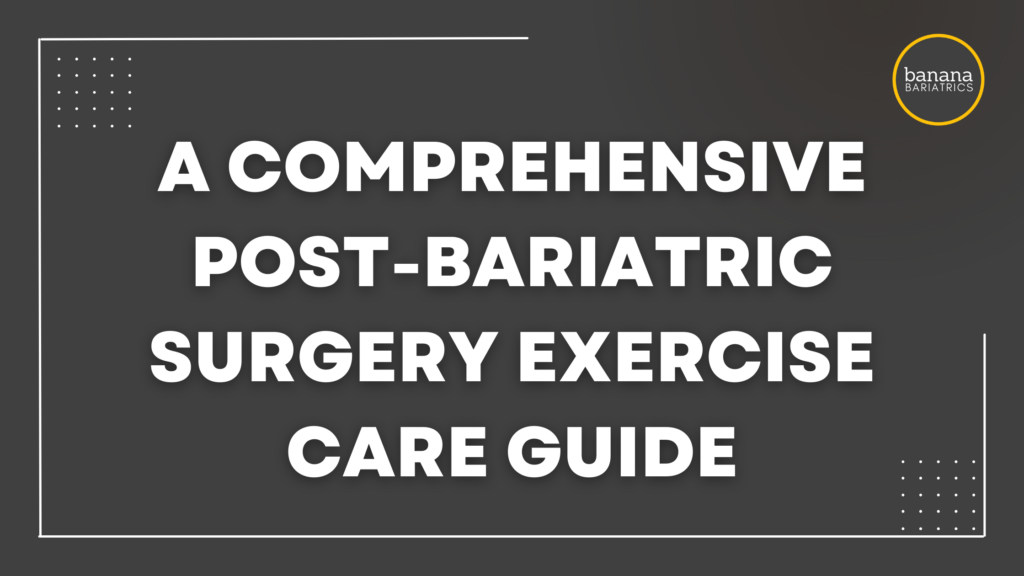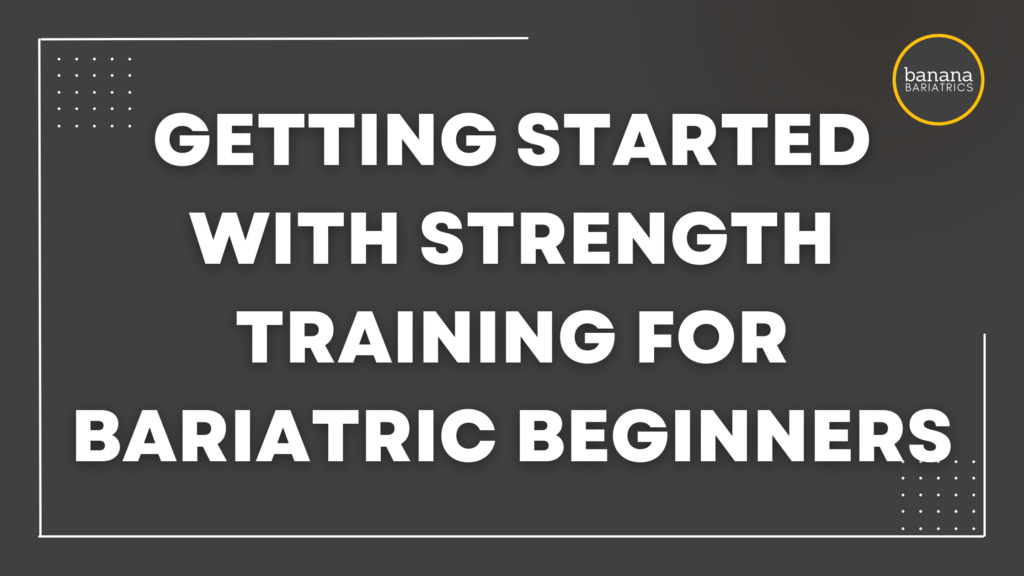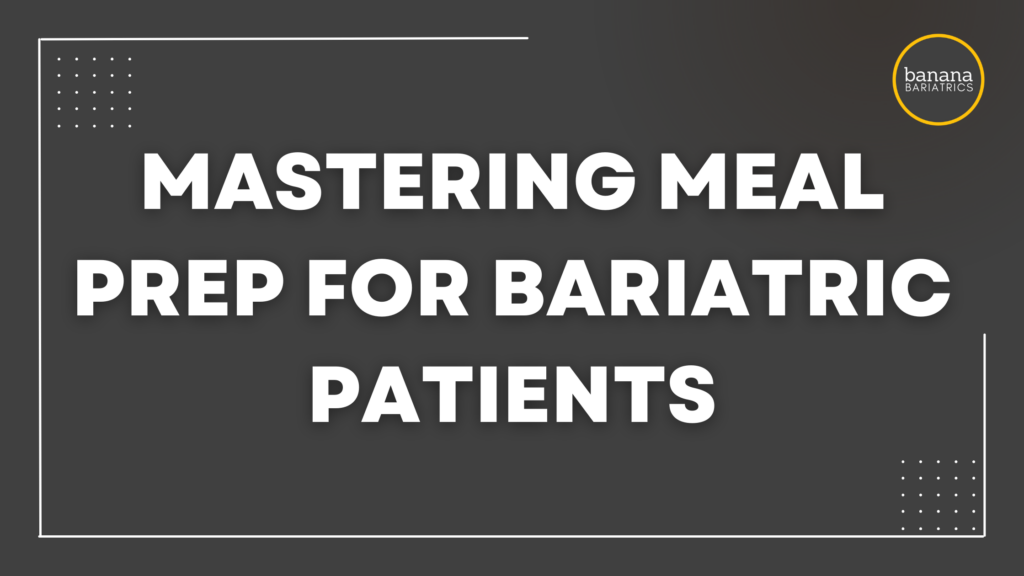A Comprehensive Post-Bariatric Surgery Exercise Care Guide

Embarking on the transformative journey of bariatric surgery sets the stage for a healthier, more resilient future. A pivotal element in this post-operative phase is the crafting of a purposeful and effective bariatric surgery exercise routine. We know that it can be tough to establish and commit to a regular exercise regimen. In this blog post, we set out to provide you with a post-bariatric surgery exercise guide that will teach you how to build – and stick to- a regular workout routine for lasting success in your fitness journey.
Finding Your Exercise Groove
Gentle Cardiovascular Workouts
Initiate your exercise regimen with low-impact cardio exercises as a bariatric patient. Walking, swimming (once all incisions are healed), and/or cycling will not only elevate your heart rate but also be gentle on your joints. Swimming and water aerobics are both great activities if you experience joint pain and/or arthritis and can be implemented once your incisions are fully healed. Gradually increase your intensity as your endurance improves and focus on making progress rather than being perfect at the exercise.
Strength Training: Building And Maintaining Muscle Mass
It is extremely important after bariatric surgery to incorporate strength training into your exercise routine at least 3 times per week. Bariatric patients tend to lose significant skeletal muscle mass after surgery due to caloric deficits, lack of appetite, and a significant reduction in food intake. By adding in strength training, you will ensure that you maintain and encourage muscle development which will not only prevent bone weakening (ie: osteopenia and osteoporosis) but also aid in increasing your metabolic rate to continue to lose weight while burning fat. Incorporate light resistance training to rebuild muscle mass gradually. You can start with body weight that incorporates compound exercises such as squats and lunges as a balanced approach to fortify your body without significant strain.
Flexibility Exercises: Enhancing Your Range of Motion
As a bariatric patient, it is worth integrating flexibility exercises into your weekly routine, such as yoga or stretching. These exercises enhance joint mobility and mitigate the risk of stiffness, promoting overall functional fitness. Flexibility is important for balance and for toning smaller muscles that help stabilize the body. This activity often gets overlooked, so be sure to incorporate it into your weekly routine.
Move More Socially
Practice integrating social activities into your fitness routine. Group classes, walks with friends, or virtual workout sessions add a layer of enjoyment to your exercise regimen, making it more likely for you to stay committed. It also helps to have a friend or two with keeping you accountable with your new exercise routine. Write the classes down in your calendar and treat them like a doctor’s appointment you can’t miss.
Navigating Nutritional Priorities
Protein-Packed Fuel For Bariatric Patients
Support your exercise routine with a protein-rich snacks and foods that are quick and easy to grab. You’ll also need to incorporate more complex carbohydrates when you increase your level of activity to better fuel your workouts and prevent muscle wasting. Learn what to eat before and after workouts in this specific blog post.
Hydration Tips That Align With Bariatric Surgery
Maintaining adequate hydration levels is vital as a bariatric patient, but even more so throughout exercising. Water is not just a beverage; it’s an important catalyst for your body’s healing processes. Prioritize water intake to optimize your exercise results and aim for >64oz of clear liquids per day as a bariatric patient.
Tips And Tricks For Long-Term Success
Hire A Personal Trainer
If you’re not sure where to get started when it comes to building out an exercise routine, let a specialist do the thinking for you! Reach out to your bariatric community (or join our own at Banana Bariatrics) to find a local Trainer who has experience working with bariatric surgery patients. Tailoring your exercise routine to your unique needs ensures a safe and effective path to achieving your fitness goals. When it comes to nutritional support, always defer to your registered Bariatric dietitians advice, as they hold specialized training in weight loss surgery nutritional guidelines.
Consistency Is Better Than Intensity
Consistency is the cornerstone of establishing a routine around exercising. Establish a manageable schedule that aligns with your lifestyle. Start slow and steady, such as exercising 2 days per week, before cranking up the intensity and duration over time. Sustainable progress is the key to lasting results. As we say inside Banana Bariatrics; “focus on PROGRESS over perfection.”
Mindful Progress Tracking
Embrace a mindful approach to tracking progress. Instead of fixating on numbers, focus on how your body feels, your increased energy levels, and an enhanced feeling of overall well-being. Soak up the sunshine, take in the fun music, and allow your body to relax and release stress. Exercising can be extremely therapeutic! Allow your body this very important kind of medicine and source of self-care, and allow it to continue to motivate yourself on your health and wellness journey ahead.
Periodic Routine Variations
Introduce periodic variations to your exercise routine. This not only prevents monotony but also challenges your body in new ways, breaking through plateaus and fostering continued growth.
Transitioning Towards a Healthier Future
Transitioning towards a healthier future as a bariatric patient involves a commitment to a strategic and holistic approach, with a solid exercise routine significantly contributing to long-term well-being. By incorporating low-impact cardio exercises, strength training, flexibility exercises, and social activities into your weekly routine, you not only support your physical health but also bring a level of enhancement to the overall experience of exercise. Nutritional priorities, hydration tips, and long-term success strategies further contribute to a comprehensive and sustainable approach. As you navigate this path, remember that small, consistent efforts yield monumental results. The post-operative phase is not merely a recovery period; it’s an opportunity to redefine your relationship with fitness and well-being, to help you sustain your weight loss, maintain your skeletal muscle mass, and continue on in your journey towards a healthier, more vibrant life.
Have You Been Struggling With Weight Loss And Regain After Surgery?
Weight regain after surgery is common and occurs in ~30% of patients…but it doesn’t have to be the “end all” of your weight loss surgery journey!
Our FREE Weight Regain Resource will help you:
- Learn the reasons why you may experience weight regain after surgery
- Identify unhealthy habits that can lead to weight regain
- Find additional support and accountability with getting back-on-track with your weight loss







Responses